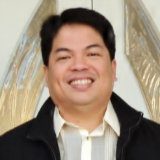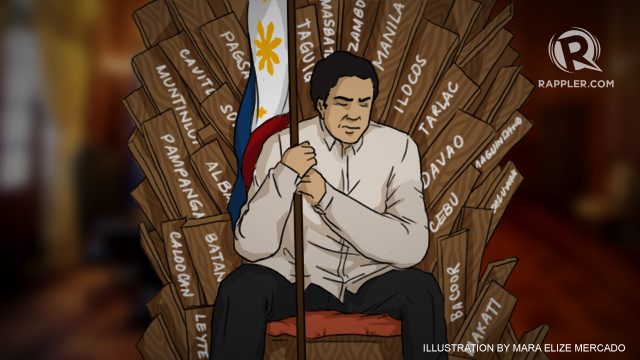SUMMARY
This is AI generated summarization, which may have errors. For context, always refer to the full article.

Some presidential aspirants are now marketing their experience in local government as a premium qualification for the Presidency. Before accepting this claim as gospel truth, it would be good for the electorate to take a long pause and consider this fact.
Since our country’s rebirth in 1986, we have had only one president with extensive experience in local government. And we all know how utterly disastrous his short tenure in office was for all Filipinos.
Actually, in principle being a mayor or a governor can be an on-the-job training of sorts for the highest post in the land. But the reality does not align with this logic at all for the sad truth is local government has always been a breeding ground for dynastic politicians.
According to noted Colombian academic, Pablo Querubin, in an article published in the Harvard Academy for International and Area Studies in October 2011, the three-term limitation set forth in the Philippine Constitution for local elected officials has actually facilitated the least desirable result for the nation’s political system – the unabated reign of political dynasties.
Traditional politicians have found a way to beat the three-term limit by employing the revolving door scheme amongst family members. Thus, establishing at the local level a public governance syndicate described by respected Mindanao civil society activist, Guiamel Alim, as “clan-inclusive government.”
Sadly, such an adverse outcome has also led to the inculturation of the myopic and parochial governance frame of mind. Clearly demonstrated by the local politico who can only be bothered by projects that have an immediate and perceptible impact and most likely simply as a knee-jerk response to the clamor of the day from his or her supporters. Of course, such is the prototypical dynastic politician and most likely the one currently holding office in the kapitolyo and munisipyo.
Therefore, voters should be extremely wary of possible presidential contenders propping up their local government credentials. In fact, in evaluating presidential candidates, it would be good for the electorate to reflect on this particular passage from one of our national hero’s works, The Indolence of the Filipino.
“The good curate,” he says with reference to the rosy picture a friar had given him of the Philippines, “had not told me about the governor, the foremost official of the district, who was too much taken up with the ideal of getting rich to have time to tyrannize over his docile subjects; the governor, charged with ruling the country and collecting the various taxes in the government’s name, devoted himself almost wholly to trade; in his hands the high and noble functions he performs are nothing more than instruments of gain. He monopolizes all the business and instead of developing on his part the love of work, instead of stimulating the too natural indolence of the natives, he with abuse of his powers thinks only of destroying all competition that may trouble him or attempt to participate in his profits. It matters little to him that the country is impoverished, without cultivation, without commerce, without, industry, just so the governor is quickly enriched!”

The villainous “governor” described in the literary work can be any one of those who have declared themselves fit for the Presidency. In fact, two of our most recent Presidents have been perfect incarnations of this plunderer in Rizal’s opus. And sadly, one of the two also boasted of his extensive background in local government.
Indeed, the only presidential candidate who deserves serious consideration from the electorate is the one who does not fit the profile of a dynastic politician. And it is a safe bet that he will display these two particular characteristics.
First, he has an acute appreciation of the challenges we face today. Our population now stands at a little over a 100 million. And given the pressing global environmental concerns, food scarcity is a very distinct and frightening possibility. Food production and climate change is a curious mix. We should be able to rely on our most senior leader to know what needs to be done to find the right balance.
Another fundamental concern with such a massive population is to decrease the number of the uneducated and the unhealthy. Hence, there will be a firm commitment to establish a genuine comprehensive national public health management framework from this presidential standout. And as far as improving our education system is concerned, promises of more classrooms and textbooks would no longer suffice for him.
Additionally however, a worthy presidential candidate also has a keen eye on the future. Meaning, he must have a discernible long-term development perspective. Therefore, the same old spiels on “uplifting the masses out of poverty” or “creating a strong republic” or “paving a straight road” will not be heard during his campaign.
His team would definitely spurn “soapbox pronouncements” that are only inspired by the news of the day and filled with spin and stop-gap measures. Because a viable presidential material is ready and willing to set economic building-blocks for future generations no matter how unpopular these undertakings may be.
Second, a notable presidential aspirant would have the audacity and smarts to present to the electorate a detailed plan of action for his term of office. This program shall embody specific public policies which his administration will translate into decisive action once he assumes office.
This documented action plan would demonstrate his acumen and determination to be the chief executive of the republic. At the very least, having such an itemized and comprehensive agenda for his tenure in the top job will distinguish him from conventional candidates who can only present political party platforms replete with slogans and sound bites that say absolutely nothing about genuine economic development.
To conclude, the caveat that must be raised here is that a presidential candidate’s “pilgrimage to power” reveals a lot about him and about what he can do for the country. And understanding how to proceed from this knowledge is the most profound civic responsibility a Filipino will ever bear. However, recent experience has already taught us that a presidential candidate who is found wanting of the two vital leadership attributes mentioned above will most likely be another “governor” in Malacañang come 2016. – Rappler.com
Michael Henry Ll. Yusingco, LL.M is a practicing lawyer. He is the author of Rethinking the Bangsamoro Perspective. He conducts research on current issues in state-building, decentralization, and constitutionalism.
Add a comment
How does this make you feel?
There are no comments yet. Add your comment to start the conversation.